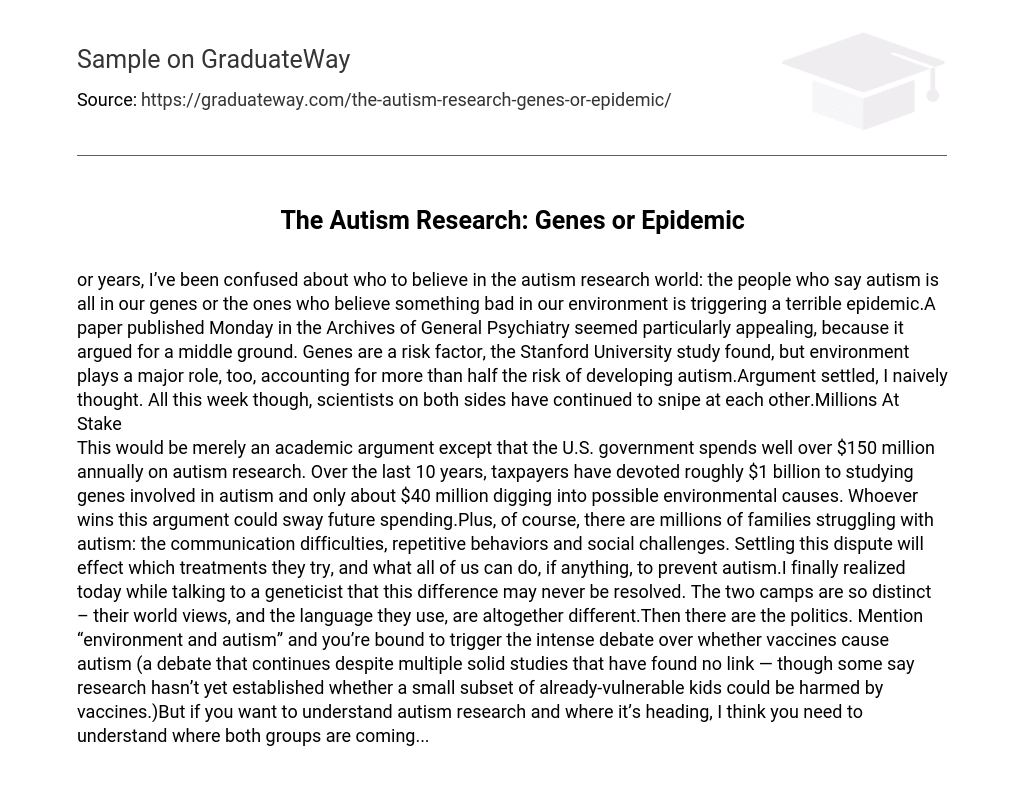or years, I’ve been confused about who to believe in the autism research world: the people who say autism is all in our genes or the ones who believe something bad in our environment is triggering a terrible epidemic.A paper published Monday in the Archives of General Psychiatry seemed particularly appealing, because it argued for a middle ground. Genes are a risk factor, the Stanford University study found, but environment plays a major role, too, accounting for more than half the risk of developing autism.Argument settled, I naively thought. All this week though, scientists on both sides have continued to snipe at each other.Millions At Stake This would be merely an academic argument except that the U.S. government spends well over $150 million annually on autism research. Over the last 10 years, taxpayers have devoted roughly $1 billion to studying genes involved in autism and only about $40 million digging into possible environmental causes.
Whoever wins this argument could sway future spending.Plus, of course, there are millions of families struggling with autism: the communication difficulties, repetitive behaviors and social challenges. Settling this dispute will effect which treatments they try, and what all of us can do, if anything, to prevent autism.I finally realized today while talking to a geneticist that this difference may never be resolved. The two camps are so distinct – their world views, and the language they use, are altogether different.Then there are the politics. Mention “environment and autism” and you’re bound to trigger the intense debate over whether vaccines cause autism (a debate that continues despite multiple solid studies that have found no link — though some say research hasn’t yet established whether a small subset of already-vulnerable kids could be harmed by vaccines.)But if you want to understand autism research and where it’s heading, I think you need to understand where both groups are coming…





